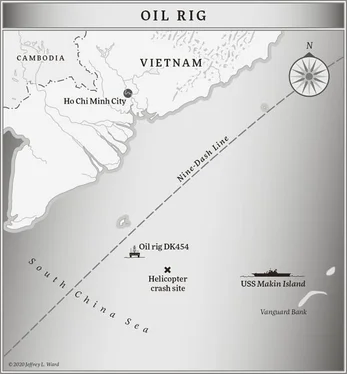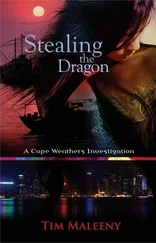“It is,” Hala said. “But when I saw the caravanserai it was on market day and it was filled with nothing but spiderwebs and dust.”
“We can’t stay here,” Clark said.
“Okay,” she said. “I will show you the way.”
She tiptoed gingerly around one of the many pools of blood and pushed a chair up to the counter next to the small white refrigerator. Removing the lid of a large clay jar of loose tea leaves, she took out a roll of brown waxed paper and held it out to Clark. “My aunt saved some money for … bad times.”
Clark nodded. “Emergency.”
“Yes,” Hala said. “I think this is emergency. No?”
“It is.” Clark gently nudged the child’s hand away. “But you keep it. Everyone needs to have some money of their own. Now, it’s going to be cold. We should bring some blankets.” He glanced around the kitchen. “And, if you don’t mind, I would like to borrow a knife to take with us.”
Hala pulled open the drawer below the cupboard where she’d found the money and retrieved a folding knife with a four-inch blade. A simple folded piece of steel formed a flat handle. The blade was carbon steel, with a wicked-sharp scimitar point. The knife did not lock open, but had a hefty spring that kept it from closing on the user’s hand under normal use. Clark recognized it immediately. It was not a fighting knife, as he’d hoped, but a French utility blade often found in the pockets of Legionnaires during conflicts in Algeria and Indochina. They’d generally fallen out of favor with modern Legionnaires, who now carried the wood-handled Opinel No. 08. The Opinel was more comfortable in the hand, but the older style suited Clark just fine.
It made sense. The wicked little French knife was called a douk-douk, after the Melanesian god of chaos and doom.
Hala took him a back way out of her neighborhood that skirted all but one of the police checkpoints, the last on the outskirts of town, some two kilometers from the livestock market. They had to abandon the scooter and cut through a pasture of fat sheep to get around. Clark took the registration plate off the scooter and then set it on fire before they left, hoping any identifying numbers would be destroyed. It was better that the police respond to a fire than find a bike that belonged to Hala’s aunt abandoned so near the Sunday Market.
The walk to the caravanserai was relatively short, but the cumulative effects of jet lag and a near-constant flow of adrenaline left Clark dragging with exhaustion.
As usual, this caravanserai was a fortresslike affair of mud and brick built around a large courtyard where camels and goods could be brought inside while the travelers ate and slept.
An entire side had fallen in—a victim of the siege of time. There was spray-painted graffiti here and there on the remaining walls—tentative, like the artist had been in a rush, terrified of being caught. Clark couldn’t read the Arabic, but it was faded and old, much of it naturally sandblasted away by the wind. A bony rat hustled from one pile of stone to another, not nearly as worried about getting caught as the graffiti painter. Peeling paint on a dusty wooden sign out front suggested that someone had once tried to turn the place into a tourist attraction. WONDERS OF THE SILK ROAD, the peeling paint read in Chinese characters and English. For whatever reason, the project had failed—leaving this particular wonder of the Silk Road long abandoned and offering Clark and Hala what appeared to be the perfect place to hide.
Any straw or animal bedding had long since turned to dust, leaving nothing but the dirt ground and the blankets they’d brought with them for beds. Clark found a spot in the back corner of an old room.
There was a vacant hole in the thick clay wall a few feet to the left of his bed—a small window, or perhaps even a gun port. He had no firearm, but he could roll out of his bed quickly and the hole gave him a viable vantage point where he could see anyone who tried to approach from the road before they saw him.
This place would do for now.
He took the secure cell phone out of his pocket. The battery was dangerously low, and there was certainly no way to charge it here. Instead of calling, he entered the code to open the encrypted text capability behind his Walk-to-Me pedometer app and thumb-typed a quick message. It would disappear ten seconds after Midas read it.
Have package. All intact. RP Bravo.
Midas would know to try to meet at 0900, 1400, and 2100 local time. Other than that, there was nothing he could do.
Clark was a planner, a strategizer, and even a gambler if the stakes were high enough, but he didn’t waste much time on worry. He’d decide what to do next tomorrow, when a couple hours’ rest had cleared his head.
Hala, obviously accustomed to sleeping on the floor, made a nest for herself at Clark’s feet. She’d spoken only to give directions since they’d left the house, her collar always in her mouth, her arms trembling as she held on to his waist behind him on the scooter.
“Will you be warm enough?” Clark asked. He was unsure of what to say but felt like he needed to check on the poor kid before passing out himself. He wasn’t completely blind to the experience of having a daughter, but was honest enough with himself to know his wife had done the lion’s share of the parenting while he was traveling the world kicking ass for flag and freedom. What could he possibly say to any little girl to comfort her? That was Sandy’s job.
Hala Tohti was what? Ten years old? When Patsy was that age, she had a comfortable home and a warm bedroom full of Barbie dolls and posters of boy bands. Hala’s father was dead, her mother gone. Three hours ago, she’d witnessed her aunt stab one man to death in the neck and then helped her cut another man’s throat with a meat cleaver—and she still had the wherewithal to think of this place to hide.
Maybe this kind of kid deserved more bedtime stories, not less.
“I am fine,” she said. Her voice quivered as the events of the evening caught up with her. Nights were always the worst—for everyone. “Did you know that I am very good on the balance beam? The government even sent me to a special school.”
“You must be good, then,” Clark said. For some reason, her small, fragile voice in the darkness brought on him an immeasurable sadness.
“I was going to compete in the Olympics someday,” she said, “but I do not think that will happen now.”
Clark swallowed, having a little trouble speaking. It was odd the things that got to him lately.
Hala saved him. “May I ask a question?”
Clark rolled up on his side, resting his elbow on the ground as he peered through the dusty darkness at the lump of blankets. He swallowed again, working very hard to smooth the gravel in his voice. Many years of being John Clark had given his personality more jagged edges than he liked to admit.
“Of course,” he said.
“Am I …” Now she sat up, looking back at him. “Am I your prisoner?”
“Oh, no, no,” Clark said. “Not at all. I am going to get you to safety.”
“That is what you told me at my aunt’s house,” the girl said, breathless, like she might get up and run at any moment. “But one can never be sure with men. They give you cake and tell you lies.”
“That is true about many men,” Clark said. “But not me. I am running, too.” He gave a soft chuckle, hoping it would help to calm her. “And I have no cake.”
“And no lies?” Stone sober now.
“No lies,” Clark said. “We’re in this together.”
She sighed and lay back down. “The Bingtuan have eyes everywhere. How will we get away?”
“Truthfully,” Clark said, “I’m not sure. But we’ll meet my friend tomorrow. We can decide what to do then. You should get some rest if you can.”
Читать дальше











![Александр Ирвин - Tom Clancy’s The Division 2. Фальшивый рассвет [litres]](/books/417744/aleksandr-irvin-tom-clancy-s-the-division-2-falsh-thumb.webp)
